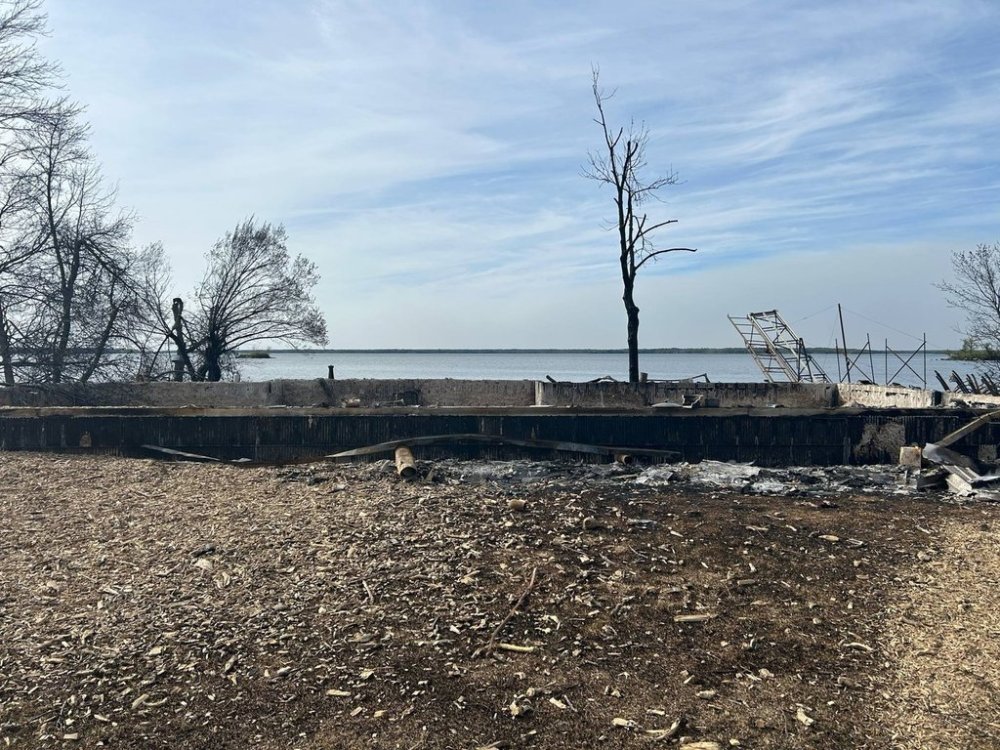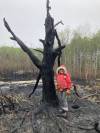‘Under a microscope’: Cottagers call for wildfire management plans after fatal fires
Advertisement
Read this article for free:
or
Already have an account? Log in here »
To continue reading, please subscribe:
Monthly Digital Subscription
$1 per week for 24 weeks*
- Enjoy unlimited reading on winnipegfreepress.com
- Read the E-Edition, our digital replica newspaper
- Access News Break, our award-winning app
- Play interactive puzzles
*Billed as $4.00 plus GST every four weeks. After 24 weeks, price increases to the regular rate of $19.95 plus GST every four weeks. Offer available to new and qualified returning subscribers only. Cancel any time.
Monthly Digital Subscription
$4.99/week*
- Enjoy unlimited reading on winnipegfreepress.com
- Read the E-Edition, our digital replica newspaper
- Access News Break, our award-winning app
- Play interactive puzzles
*Billed as $19.95 plus GST every four weeks. Cancel any time.
To continue reading, please subscribe:
Add Free Press access to your Brandon Sun subscription for only an additional
$1 for the first 4 weeks*
*Your next subscription payment will increase by $1.00 and you will be charged $16.99 plus GST for four weeks. After four weeks, your payment will increase to $23.99 plus GST every four weeks.
Read unlimited articles for free today:
or
Already have an account? Log in here »
Hey there, time traveller!
This article was published 23/05/2025 (242 days ago), so information in it may no longer be current.
WINNIPEG – Cottage owners and disaster prevention experts in Manitoba are urging governments to develop comprehensive wildfire management plans after a pair of devastating wildfires.
Close to 1,000 people were forced from their homes last week as a wildfire near the Rural Municipality of Lac du Bonnet, spurred by dry, hot and windy conditions, burned nearby.
The quick-moving fire, which is currently being held, destroyed 28 homes and cottages and left two people dead.

“The whole emergency plan for every municipality should be under a microscope review right now,” said Brad Wood, a Winnipeg firefighter whose cottage was destroyed.
Wood was one of several residents allowed to return Wednesday to assess the damage. His cottage was among 18 homes destroyed on Wendigo Road. Rubbles of black, charred materials and singed trees overtook what used to be lush, green vegetation.
“I’ve never seen fire devastation at that level,” Wood said.
When Lianne Ross-Martin returned to her Wendigo Road cottage, it looked like a “wasteland.”
“Wendigo Road is in my soul. I have been out there my entire life,” said Ross-Martin, who primarily lives in Winnipeg. “I don’t know what I am without a Wendigo Road.”
Wood was at the cottage when word of the fires began to spread. A neighbour saw his truck and notified him of the impending fire. In less than 20 minutes, clear blue skies were filled with smoke, he recalled.
Neither he nor Ross-Martin received notifications about the wildfires.
Wood is calling on all levels of government to work with local cottage owners to create or update emergency plans to mitigate wildfire danger.
“We don’t really have any kind of public notification to teach or to give people any form of information or access to information,” he said.
Since the evacuation, local officials have said they have been working to get timely information out to residents through various channels, mainly social media.
Gordon Campbell, president of the Lester Beach Association in the Rural Municipality of Alexander, said he and other members went to officials a few years ago to come up with a wildfire management plan as dry conditions made nearby forests vulnerable to fires.
The group was looking for information on evacuation routes if there were wildfires, how people would be alerted, safety protocols and plans to maintain forested areas.
Progress has been slow, with some meetings taking place last year and this past spring, he said.
“We’ve continued to push the rural municipality to develop this plan,” said Campbell.
Parts of the municipality were evacuated last week as a colossal wildfire near Nopiming Provincial Park burned. Some people were allowed home this week — provided residents signed up for the municipality’s alert system and were ready to leave within two hours if conditions changed.
Campbell said he has seen the benefits of an alert system, but it can only work if everyone uses it. Rural areas are often dead zones for cellphone connectivity, making it challenging for critical alerts to come through.
He said many municipalities are being reactive instead of proactive.
The Institute for Catastrophic Loss Reduction has been seeing movement from governments in British Columbia and Alberta. But the Toronto-based research centre said the uptick in being fire smart drops the farther east you go.
“Until they have a loss in the community, it’s not something they think about,” said managing director Glenn McGillivray.
Climate research shows wildfires have become more prevalent in places where people live in the past 15 years, but loss of life among residents is rare, said McGillivray.
He said communities should be built up in a way that makes them wildfire resilient, such as using fire-retardant materials when building homes.
“We rely too much on voluntary actions,” he said. “We can no longer just rely on voluntary action — we have to embed this into the law.”
This report by The Canadian Press was first published May 23, 2025.











